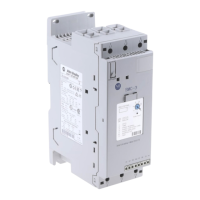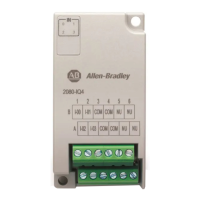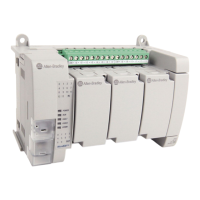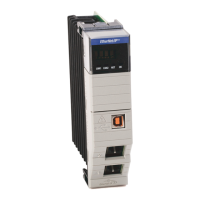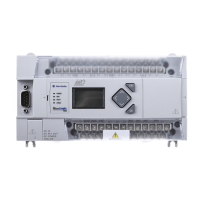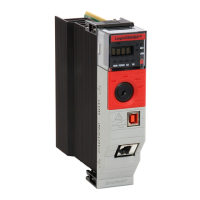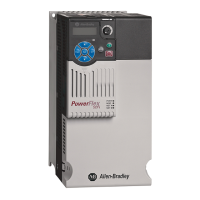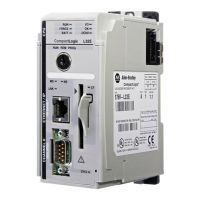136 Rockwell Automation Publication ICSTT-RM447M-EN-P - July 2019
Chapter 8 Application (Resource) Development
Support for Variable Types
For each controller, you can declare variables using all types identified in IEC
61131-3, including Boolean, 16-bit integer (signed and unsigned) and 32-bit
real. Controller-specific types include structures to hold multiple variables for
each I/O channel type. Variables are easily imported from external databases if
required.
Variables are found in a data dictionary. The development environment
supplies a hierarchical tree of variables and a grid-like representation of their
definitions.
I/O Connection (Addressing
of Physical I/O)
To show the links between the hardware-independent logical variables of the
AADvance application program and the physical I/O channel available on the
controller, the AADvance Workbench has a powerful I/O connection editor.
I/O channel links are easily identified between the logical programming and
the I/O wiring configuration. The I/O configuration can be tested separately
from the application execution such that each module can be debugged
separately.
Any I/O device can be represented as a single module or a group of redundant
modules. Different data types are accommodated. You can work directly on a
pre-defined I/O configuration, expand and change the configuration, and the
workbench fully supports directly represented I/O variables as described in the
IEC 61131-3 standard.
Off-line Simulation and
Testing
An engineer can validate a full application off-line, without the target hardware
platform. The powerful simulator within the development environment can do
structural and functional tests of each module and of the full application.
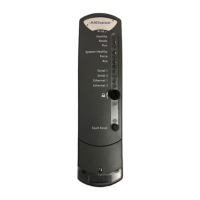
